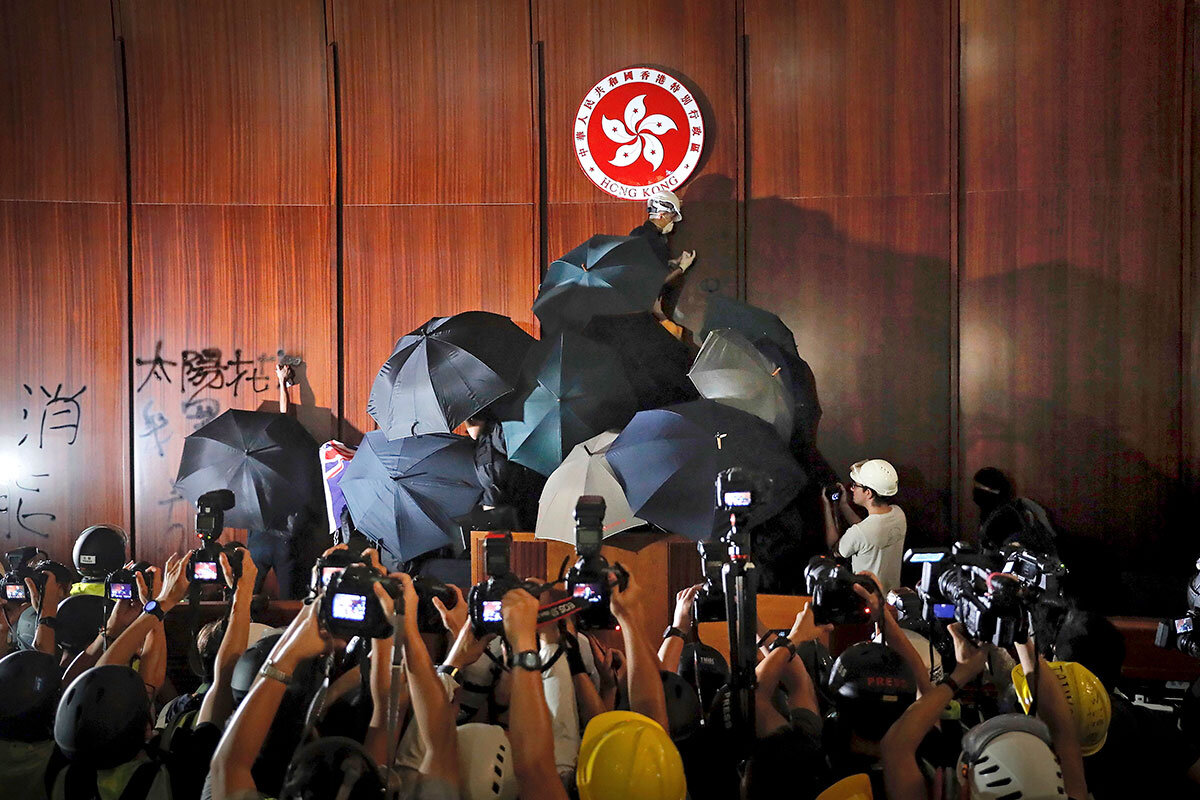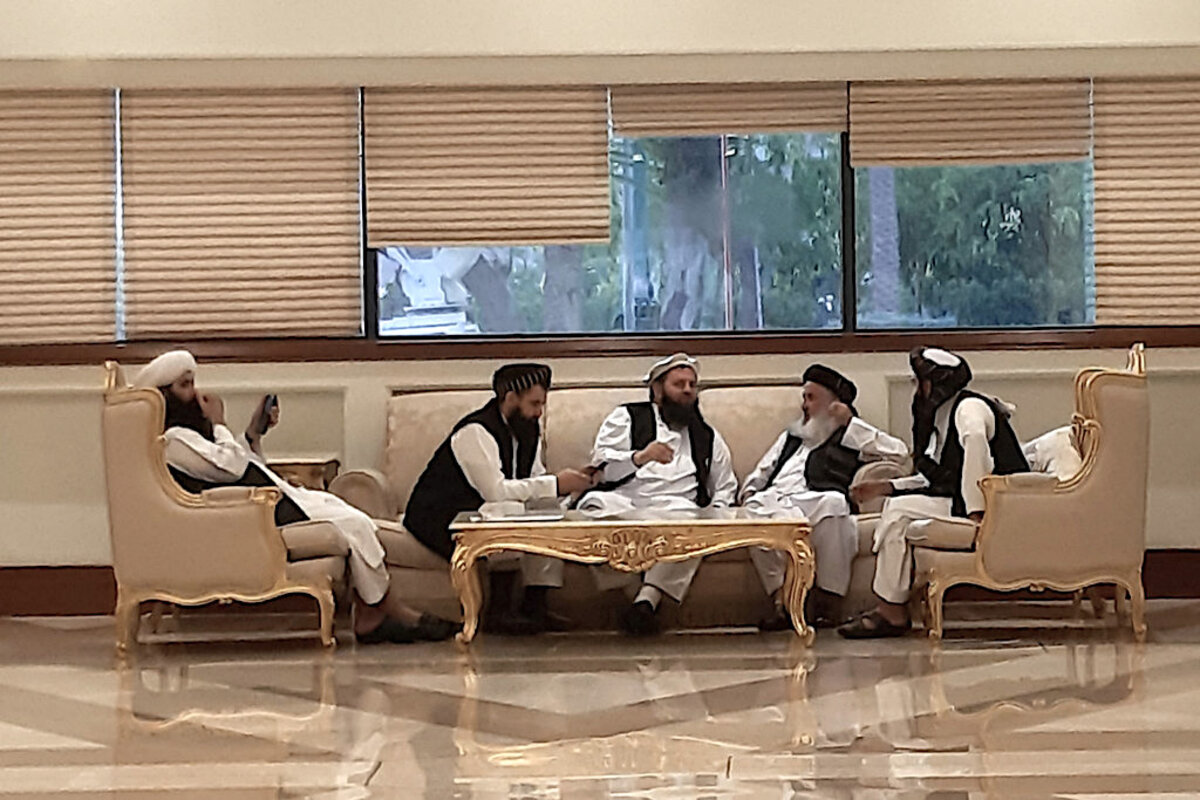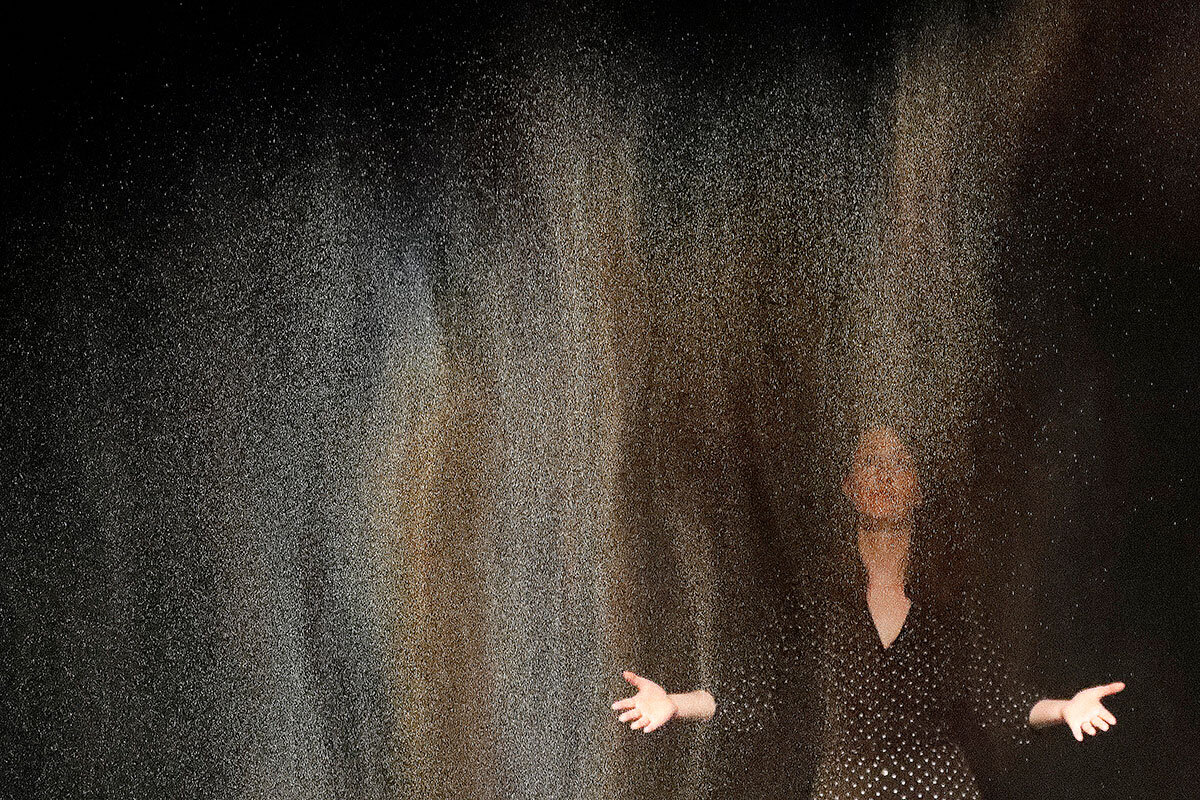What happens after a longtime dictator is ousted? Sudan shows that the path to progress is seldom straight. A surprise deal to democratize the country is being met with guarded optimism.
Monitor Daily Podcast
- Follow us:
- Apple Podcasts
- Spotify
- RSS Feed
- Download
 David Clark Scott
David Clark Scott
In today’s edition, we have a path to democracy (Sudan), leadership without leaders (Hong Kong), Democrats for Trump (Kentucky), next-gen farmers (Alaska), and empathy through music (Iraq via Chicago).
But first, let’s talk baseball. If Shakespeare were alive, he might declare that “something is rotten” in the state of the ballpark.
We are at the All-Star break of Major League Baseball (MLB). Pete Alonso won the Home Run Derby Monday night. But instead of enjoying this annual apogee of summer, fans are abuzz about juiced balls.
Home runs are up a whopping 19% over last year. Players are on pace to hit 6,668 home runs, smashing the record 6,105 hit in 2017.
And dingers are going farther than ever, Sports Illustrated reports.
Last month, MLB confirmed the balls are, well, different. The drag coefficient is lower. Less drag means longer flights. The drag is lower because the “pill” (the core) is consistently centered, said the MLB commissioner. But he insists no changes were made in the baseball production process or the materials.
Baseball has long been a mirror of American societal values, a kind of moral compass. The sport champions individual achievement as well as team cohesion. It’s built on adherence to rules and sportsmanship. (Remember the Pete Rose lifetime ban?) It has charted the evolution of U.S. civil rights (see Jackie Robinson).
To some, the 2019 home-run binge smells like someone is messing with the integrity of the national pastime. “It’s a ... joke,” complains Justin Verlander, the starting pitcher in Tuesday night’s All-Star game.
But hitters aren’t complaining. And fans seem conflicted, torn between tradition, precedent, and the fireworks of more offense.
If Yogi Berra were here, he’d have an appropriately ambiguous response: “When you come to a fork in the road, take it.”











